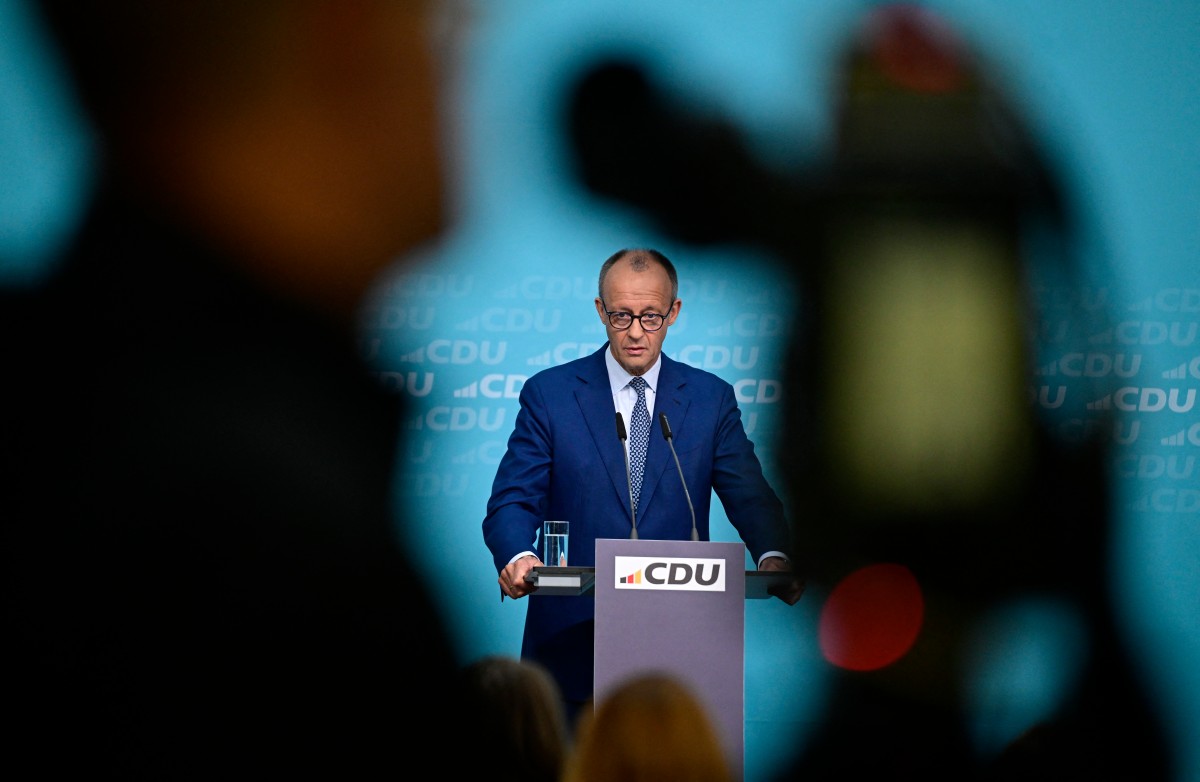Chancellor Friedrich Merz attempts to clarify ‘cityscape’ comment amid growing backlash, shots fired in Hanover, Volkswagen could be hit by semiconductor shortage and more news from around Germany on Thursday, October 23rd.
Thursday’s top story: Merz finally attempts to walk back ‘cityscape’ comments
After nearly a week of widespread criticism of his statement on problems in the “cityscape”, Chancellor Friedrich Merz finally explained in more detail what he meant during a visit to London on Wednesday.
The CDU politician emphasized that Germany will continue to need immigration in the future, especially for the labour market.
Then he named more specifically which group of foreigners disturbs him in German cities: he says it’s immigrants without a right of residence who do not adhere to Germany’s rules. He added that this group “also cause big problems for our police”.
People with a migrant background are already “an indispensable part of our labour market”, the Chancellor admitted.
“We can no longer do without them, no matter where they come from, what skin colour they have and no matter whether they live and work in Germany in the first, second, third or fourth generation.”
The Chancellor spoke on the sidelines of the Western Balkans summit in London.

German Chancellor Friedrich Merz addresses journalists on October 20, 2025 at the CDU party headquarters in Berlin. (Photo by John MACDOUGALL / AFP)
Just days earlier, Merz had suggested that he had “nothing to take back” and even doubled down on his comments by telling a reporter to “ask your daughters” what he means — implying that Germany’s young women were threatened by foreigners.
In response more than 120,000 people had signed a petition within 24 hours which read, “We are the daughters and do not let ourselves be harnessed by your racism, Mr. Merz!”
OPINION: Merz’s divisive comments are a distraction from real problems in Germany
German firm behind Louvre heist truck basks in publicity
The German company that made the furniture hoist used in the Louvre heist has been taking advantage of the scandal to promote the device, posting tongue-in-cheek adverts about the quality of its equipment.
Boecker, a lifting equipment maker based near Dortmund, posted a picture of the mounted truck outside the Paris museum on social media with the caption: “When you need to get going again quickly.”
Advertisement
The device, called the Agilo, can transport up to 400 kilograms with an engine that is “as quiet as a whisper”, the post said.
Alexander Boecke, managing director of the company, told AFP the machine was sold “a few years ago to a French customer who rents this type of equipment in Paris and the surrounding area”.

French police officers patrol in front of the Louvre Museum after it was robbed (Photo by Dimitar DILKOFF / AFP)
Similar pieces of equipment are a common sight around Paris, where elevators are small or absent in most apartment buildings.
OPINION: Louvre jewel theft shows that France is simply too rich
The alleged jewel thieves had arranged to have the vehicle demonstrated to them last week and had stolen it during the demonstration, he said.
“They removed the customer’s labelling and replaced the license plates,” Boecker said.
Watching news reports about the heist on Sunday, Boecker, 42, and his wife quickly recognised the furniture hoist as being one of theirs.
One dead and several injured after shots fired in Hanover
Investigations are in full swing after shots were fired in Hanover on Wednesday night.
According to the police, two or more groups got into an argument on Wednesday evening, then the conflict escalated.
“Several shots were fired,” said the police spokeswoman. A 27-year-old was killed and several people were treated in surrounding hospitals.
Later on, police discovered another injured person near the main train station – about four kilometres from the scene of the crime.
The officers arrested a suspected perpetrator nearby, but the search for other suspects continues.
As of Thursday morning many questions remain unanswered.
German industry under pressure over semiconductor shortage
The ongoing semiconductor shortage is putting increasing pressure on Germany’s industry and government.
Industry associations including the German Association of the Automotive Industry (VDA) and the Association of the Electrical and Digital Industry (ZVEI) warn that production stoppages may soon occur if supply chains are not restored.
Dutch officials invoked a Cold War-era law last month to effectively take control of the Netherlands-based but Chinese-owned Nexperia, citing national security concerns, as the sector increasingly becomes a focus of geopolitical tensions.
The company then said Beijing had banned it from exporting certain goods from China since early October — potentially a serious problem for carmakers as its chips are widely used in vehicles’ electronic control units.
Nexperia produces essential discrete semiconductors which are critical for vehicle electronics like power management and sensor systems.
Advertisement
Germany’s Volkswagen warned Wednesday that its car production could be hit by a shortage of Nexperia semiconductors.
Europe’s biggest carmaker confirmed that some Nexperia components are used in its vehicles but said production was “currently unaffected”.
“However given the dynamic nature of the situation, an impact on production cannot be ruled out in the short term,” added the company.
It said production of the VW Golf and Tiguan would be suspended on Friday as part of planned measures and would resume the following week, though it denied earlier media reports that this was linked to the chip shortage.
Germany’s Bild newspaper reported that the chip shortage would lead to the suspension of production at key VW factories from next week.
READ ALSO: Thousands of Volkswagen workers in Germany agree redundancy payouts
Advertisement
Fuel prices fall in Germany
Fuel prices in Germany have fallen for the third consecutive week, bringing relief to motorists.
According to ADAC data, diesel prices dropped by 1.9 cents per litre to an average of €1.565, while Super E10 petrol fell by 1.5 cents to €1.656 per litre nationwide earlier this week.
This decline follows a peak in late September, when diesel was 5.2 cents higher and E10 petrol 2.2 cents more expensive.
ADAC attributes the falling prices mainly to a decrease in crude oil prices, which have eased from around $70 per barrel at the end of September to approximately $61 recently.
An unusual trend accompanying this fall is the widening price gap between diesel and petrol, which is atypical for the current season.
Normally, the difference narrows during the heating period as diesel prices rise alongside heating oil demand, then widens again in spring, but the gap has increased this autumn.
READ ALSO: Is it cheaper to fill your fuel tank in Germany or across the border?
With reporting by DPA, AFP and Tom Pugh.
Disclaimer : This story is auto aggregated by a computer programme and has not been created or edited by DOWNTHENEWS. Publisher: thelocal.de






